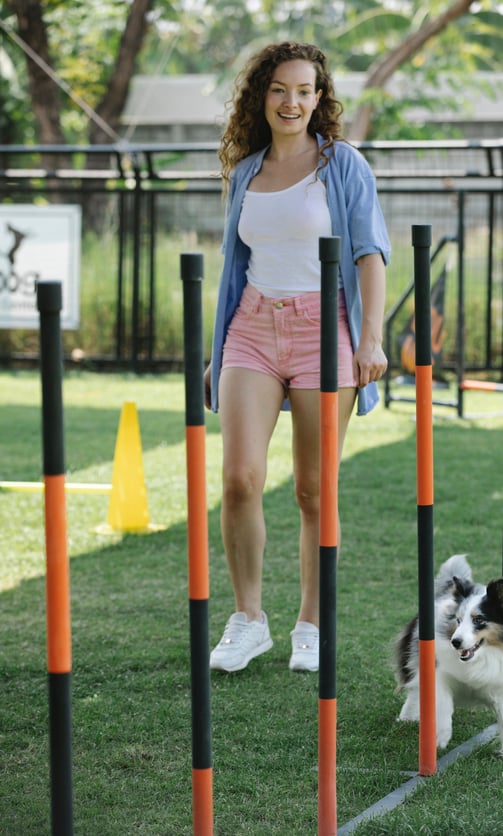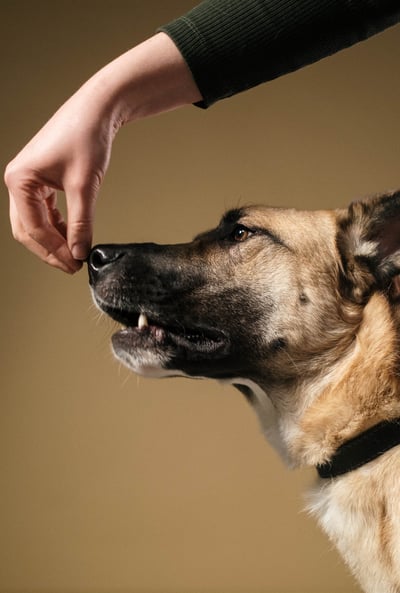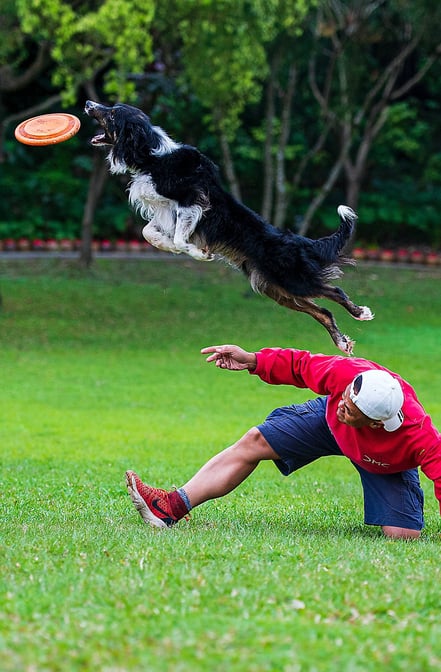Transform your dog’s behaviour with these 5 easy training tips
Training tips have never been so easy to follow. Subscribe now and you'll never miss a hot topic at Pawfect Adventures!
Transform your dog’s behaviour
with these 5 easy training tips
Welcome to my blog on dog training! As a professional dog trainer, I've seen first-hand the incredible impact that training can have on dogs and their humans. Training is not just about teaching your dog basic obedience commands, but also about building a strong and positive relationship with your furry companion.
In this post, I'll be discussing the five key training approaches that I believe are essential for any dog owner to know: consistency, positive reinforcement, socialisation, exercise and mental stimulation, and seeking professional help. Promoting good behaviour, reducing stress and frustration, and improving overall well-being and quality of life, is just the beginning of the benefits to follow. These approaches not only add value for the dog and the human, but they also have a lasting impact on the community as a whole. By using these approaches, dog owners can build a strong and positive relationship with their furry companion and make public spaces safer and more enjoyable for everyone.


1. Consistency
Consistency is key when it comes to training your dog. Dogs thrive on routine and clear expectations, so it's important to establish a consistent training approach that is easy for your dog to understand. This means using the same commands, tone of voice, and rewards every time you train. Consistency also reduces frustration and confusion for both you and your dog.
Consistent training benefits not just the dog, but also the human. By establishing clear boundaries and expectations, you'll feel more in control and confident in your role as a dog owner. This can lead to a stronger and more positive relationship with your dog. Additionally, a well-trained dog is a joy to be around, which can improve your overall quality of life.


2. Positive Reinforcement
Positive reinforcement is another essential training approach. Rather than using punishment or force to correct your dog's behaviour, positive reinforcement focuses on rewarding good behaviour. This could be treats, verbal praise, or even physical affection like petting or playing.
Positive reinforcement is a powerful tool for building trust and communication between you and your dog. It also promotes good behavior and helps your dog feel more secure and confident in their role. For humans, positive reinforcement can be a fun and rewarding experience, improving your relationship with your dog and reducing stress.


3. Socialisation
Socialisation is the process of introducing your dog to new people, animals, and environments. This is important for helping your dog feel comfortable and confident in a variety of situations, reducing anxiety and fear. Socialisation also promotes good behaviour, making your dog more adaptable and less prone to aggression or unwanted behaviour.
Socialisation benefits not just the dog, but also the general public. A well-socialised dog is safer and more enjoyable to be around in public spaces, reducing the risk of accidents or incidents. Additionally, a well-socialised dog is more comfortable around strangers, making visits to the home more welcoming and comfortable for home visitors.


4. Exercise and Mental Stimulation
Regular exercise and mental stimulation are essential for a happy and healthy dog. Dogs need both physical and mental stimulation to prevent boredom, anxiety, and destructive behaviour. This could be anything from a daily walk to a game of fetch, or even training sessions that challenge your dog's mind.
Exercise and mental stimulation benefit both the dog and the human. Providing these activities can be a fun and rewarding experience for both of you, promoting physical and mental health and reducing stress. Additionally, a well-exercised and mentally stimulated dog is less likely to exhibit destructive or aggressive behaviour in public spaces, making outdoor activities safer and more enjoyable for everyone.


5. Seeking Professional Help
Finally, seeking professional help when needed is an important part of dog training. While training can be a fun and rewarding experience, it can also be challenging and frustrating at times. Working with a professional trainer or behaviourist can provide guidance and support, helping you better understand your dog's behaviour and how to train them effectively.
Seeking professional help benefits not just the dog, but also the human. It can provide peace of mind and reduce stress and frustration in the training process. Additionally, working with a professional can help identify and address any underlying behavioural issues your dog may have, improving their overall well-being and quality of life.
Working with a professional trainer can also benefit the general public by reducing the risk of accidents or incidents caused by a dog's behaviour. A well-trained dog is safer and more enjoyable to be around, making public spaces more welcoming and accessible to everyone.
In conclusion, training your dog is an essential part of being a responsible and loving dog owner. By using consistent, positive, and social training approaches, providing regular exercise and mental stimulation, and seeking professional help when needed, you can build a strong and positive relationship with your furry companion. Not only does this benefit your dog's well-being and behaviour, but it also improves your own quality of life and the safety and enjoyment of the general public.
Happy training!
Summary
Subscribe to our emails
Copyright © Pawfect Adventures LTD.
All rights reserved.
Pawfect Adventures and pawfectadventures.com are trading names for Pawfect Adventures LTD.
"Pawfect Adventures", the green pawprint logo and the slogan "all your adventure needs" is a registered trademark of Pawfect Adventures LTD.
Registered in England: company number 14464582.
